Interior Health (IH) staff are beginning to transition to gloves featuring an Indigenous bear logo at work sites across the region. The logo not only represents cultural awareness but represents the vendor Medical, Surgical and Safety Supplies Ltd.’s profit-sharing commitment to support economic reconciliation for Indigenous communities, including the Osoyoos Indian Band.
Indigenous vendor brings gloves and economic reconciliation to IH
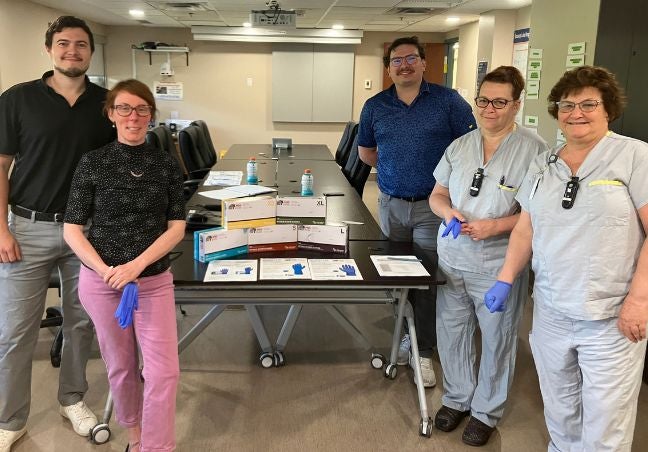
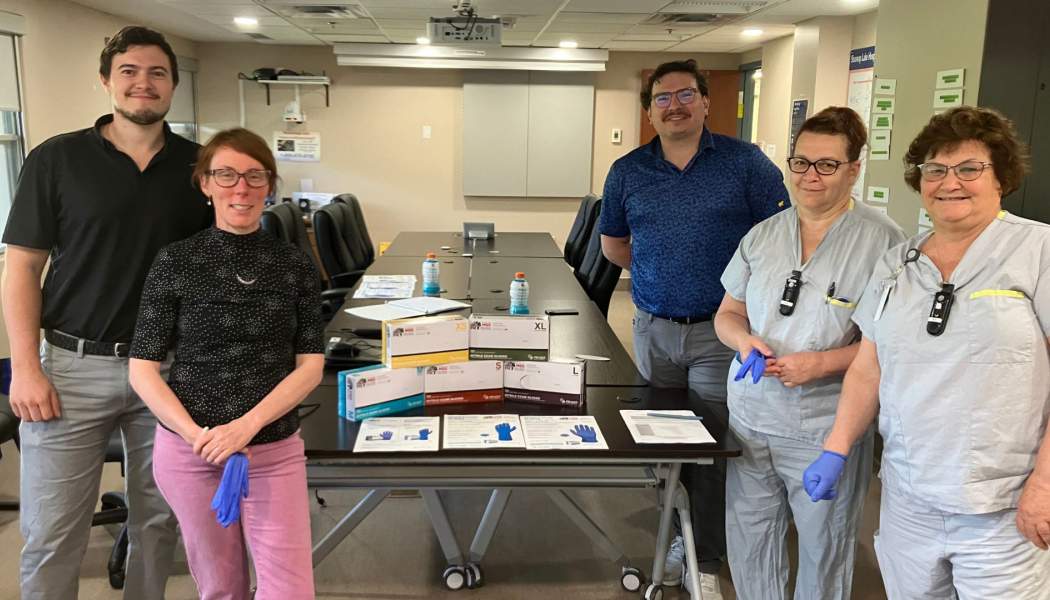
Sharing the story behind the gloves—and one of reconciliation
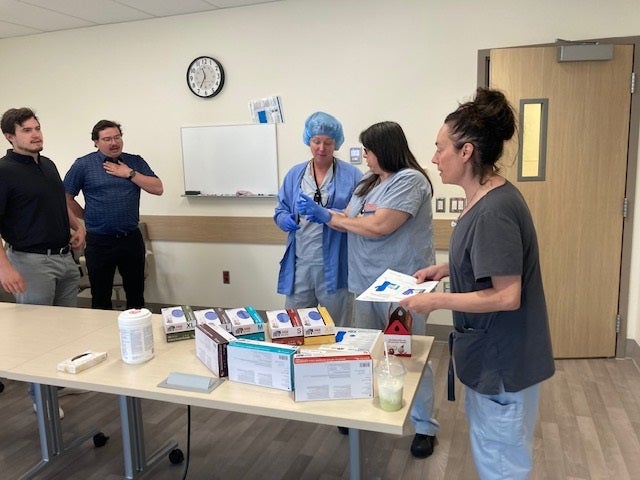
The partnership between Medical, Surgical and Safety Supplies (MSS) Ltd., IH and the Provincial Health Services Authority (PHSA) took a big step forward at the end of June 2024, with MSS visiting seven sites throughout the IH region. These site visits gave IH staff the opportunity to check out the new gloves, ask questions and meet the supplier, represented by Matteo Milroy, national account manager - Indigenous Relations, MSS.
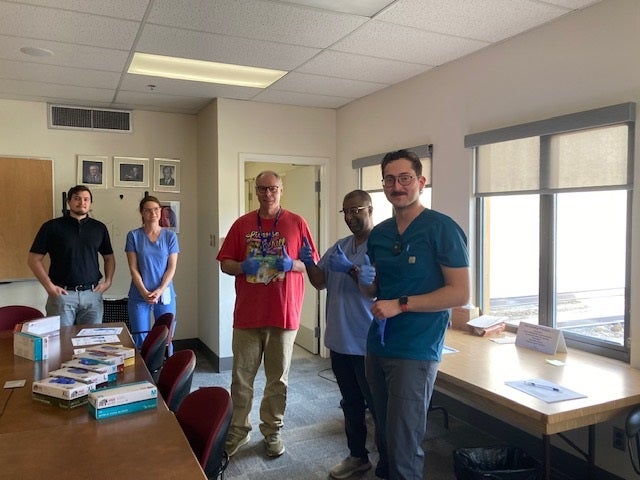

Everyone was excited about having a dependable and great-quality glove. The general feedback was that the gloves were slightly thicker and did not rip like previous gloves.
Sites MSS visited included Kelowna General Hospital, Vernon Jubilee Hospital, Shuswap Lake General Hospital, Penticton Regional Hospital, South Okanagan General Hospital, Royal Inland Hospital and East Kootenay Regional Hospital.
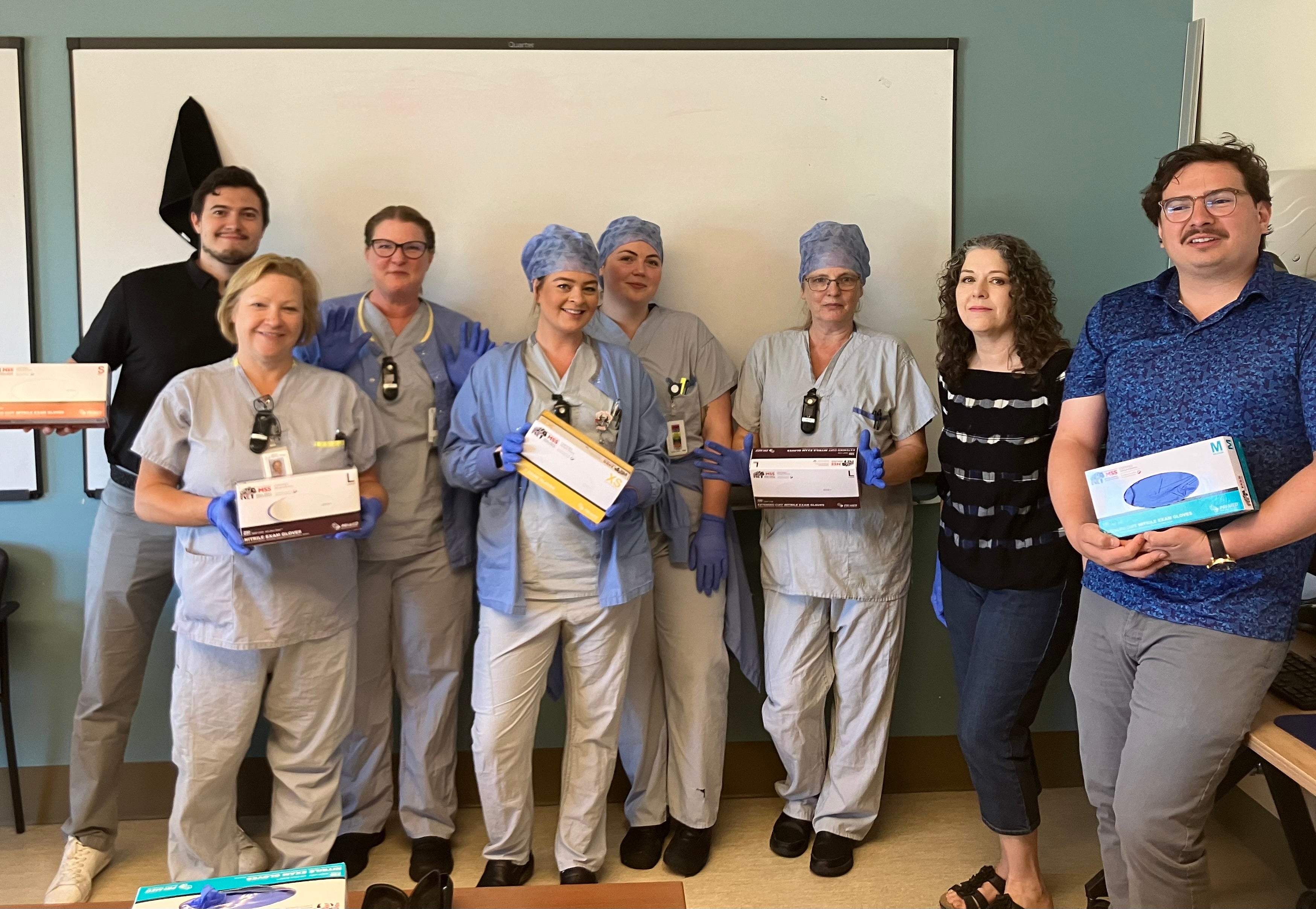

It was great to visit the seven IH sites. The greatest benefit of being there in person is that we could convey the story behind our gloves and the reconciliation with our Indigenous partners.
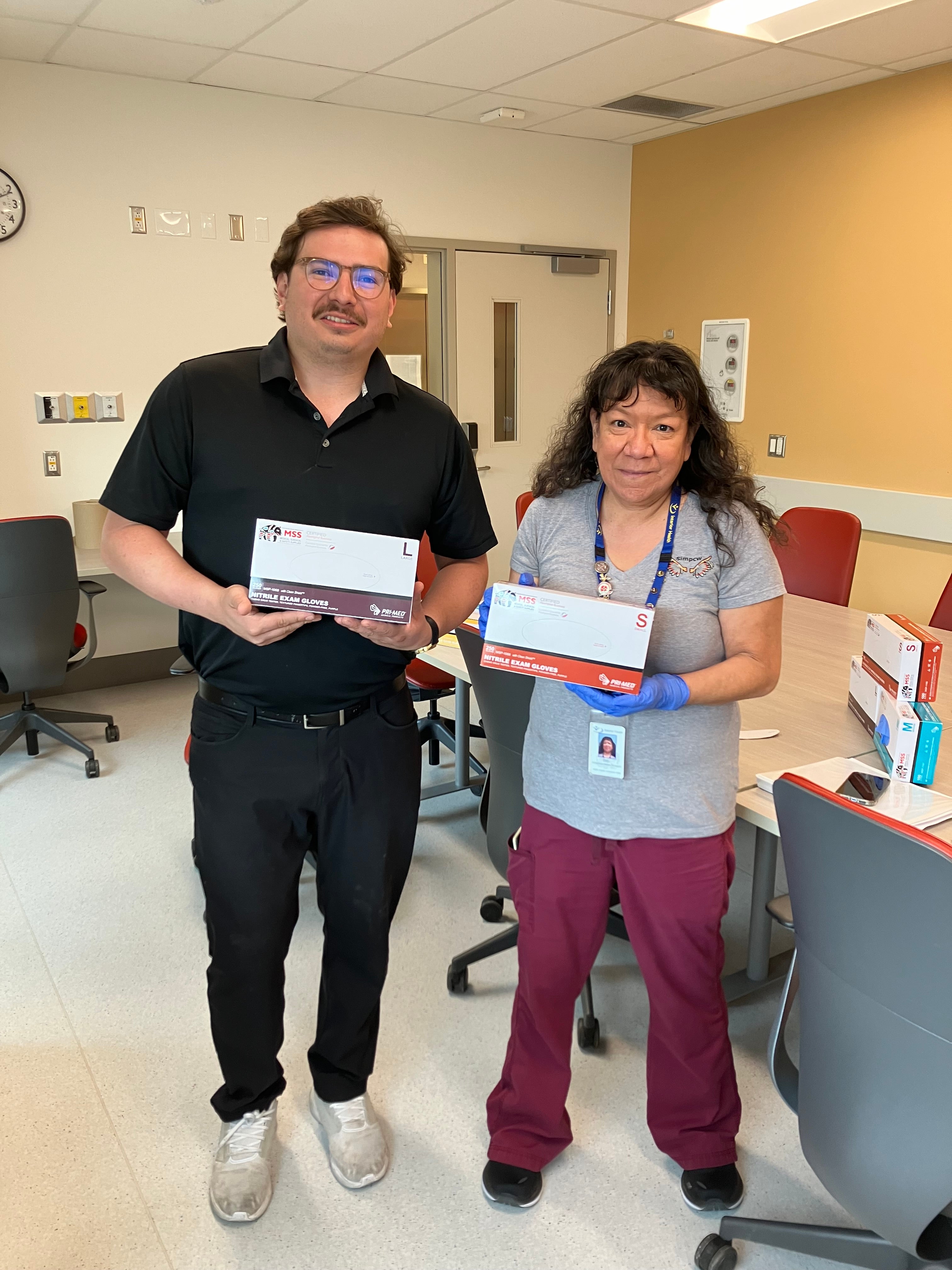
Norrie Tennant, PHSA lead, Customer Relations & Promotions for IH, says MSS’s story was well received by IH staff. Both MSS and PHSA team members were able to meet a wide range of health-care team members during their site visits.
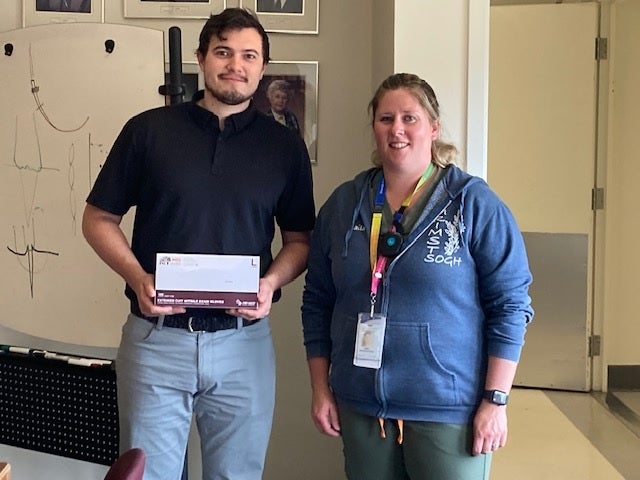

We met staff from medical device reprocessing, biomed, nursing, environmental services and infection control, as well as managers, Indigenous [patient navigators], operating room staff and product advisors, to name a few.
Providing equitable opportunities to Indigenous Peoples
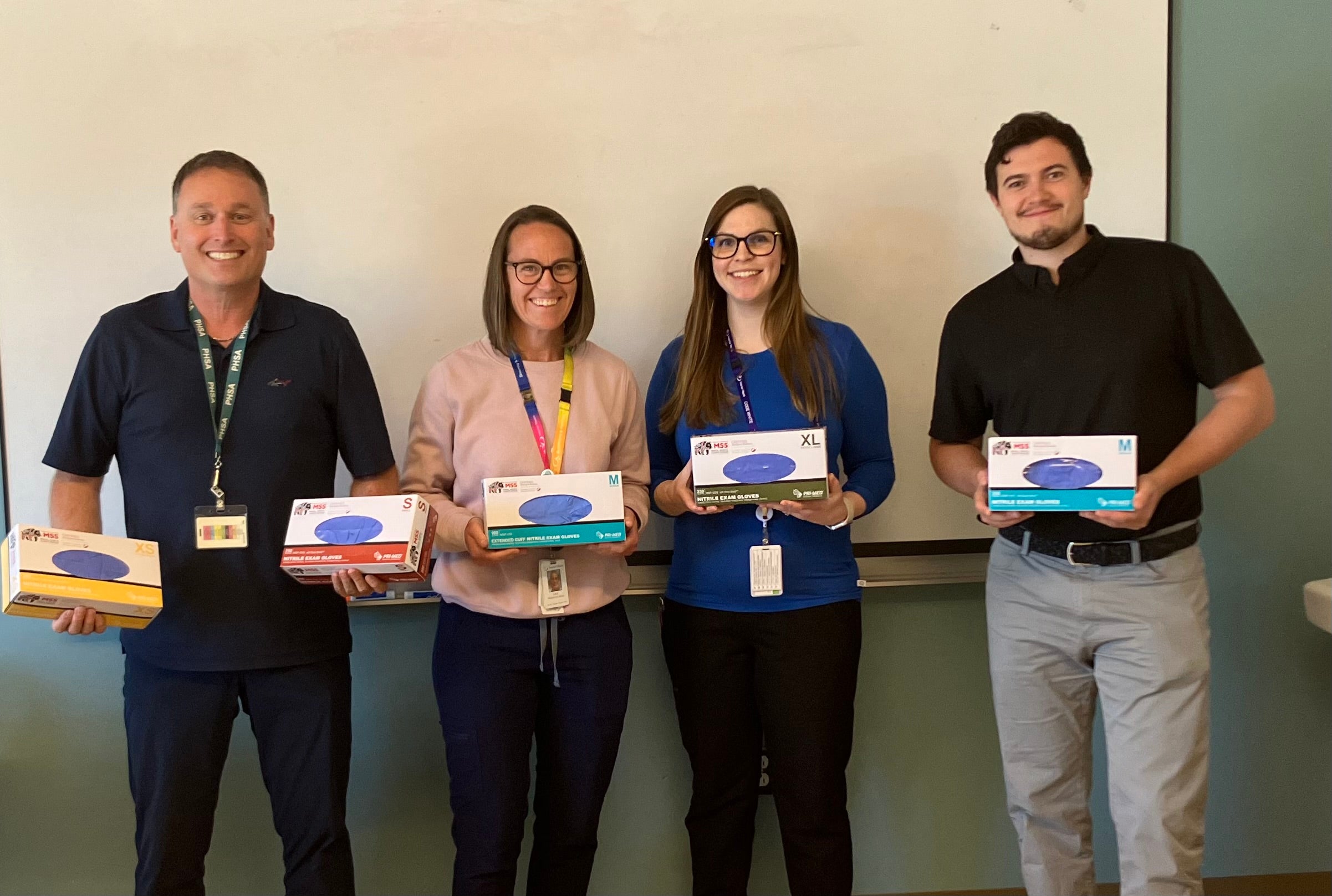
James Hiebert, president of MSS, is a member of the Mohawk Nation’s Turtle clan. He’s also a generational leader distinguished not only by his lineage, but also by his unwavering commitment to reconciliation and Indigenous empowerment.
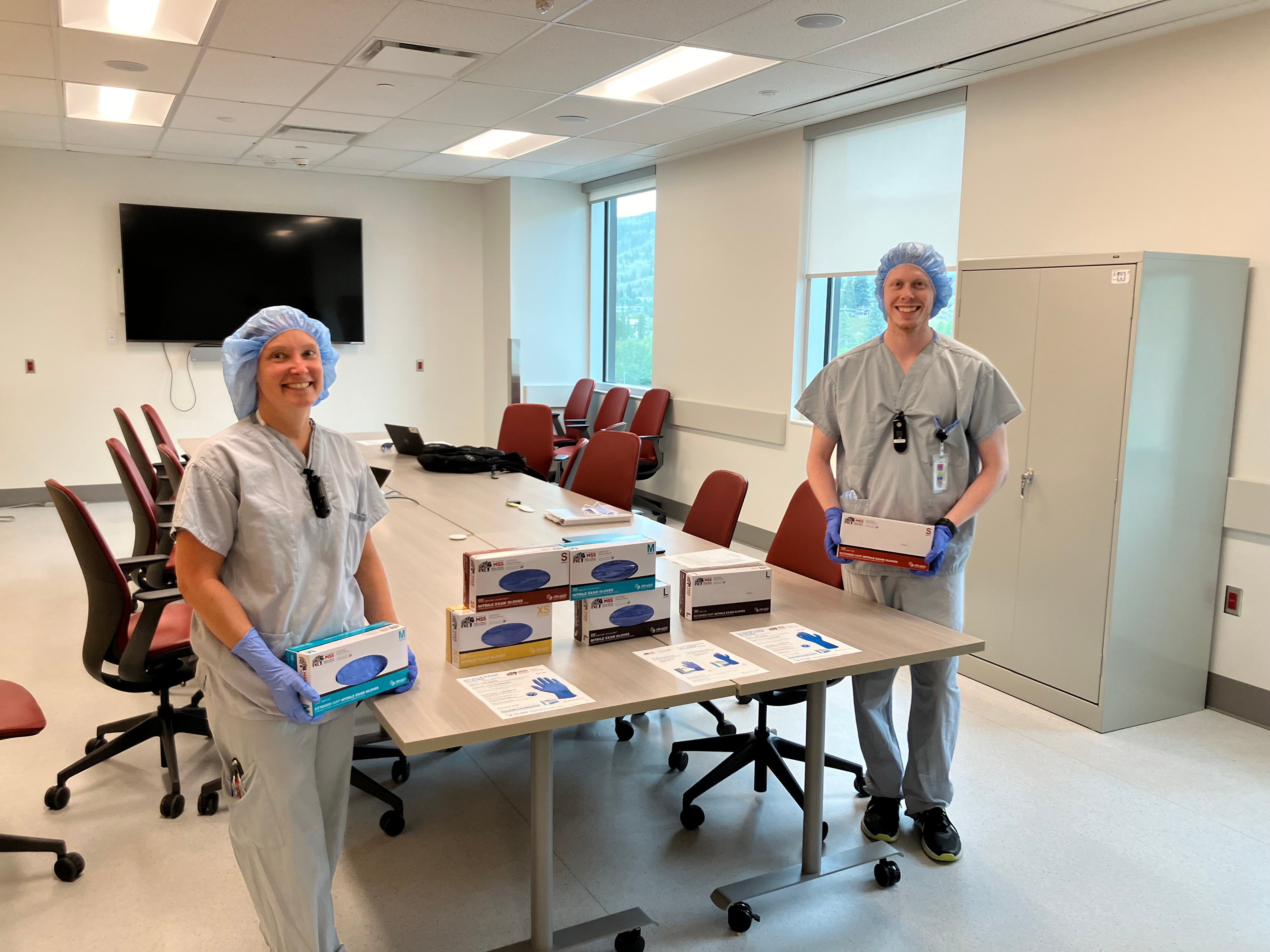
MSS is a certified Aboriginal Business through the Canadian Council for Aboriginal Business and the largest Indigenous-owned medical supply company in Canada. The company partners with local Indigenous bands where their products are sold, making bands a social beneficiary and symbolized by the Indigenous bear logo on the gloves. For the IH region, the beneficiary of this partnership is Osoyoos Indian Band.
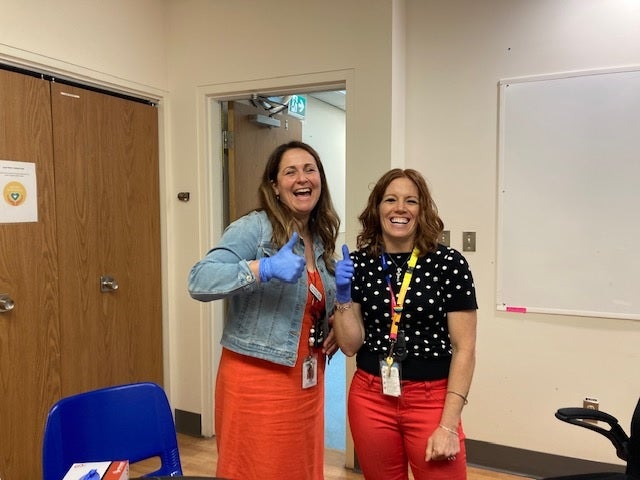

It’s going to be a massive benefit for our community. We’re never allowed at the table. Anywhere. We’re not allowed to participate in the economy of Canada. This is a terrific start.
In the In Plain Sight: Addressing Indigenous-specific Racism and Discrimination in B.C. Health Care 2020 report more than two-thirds of Indigenous respondents to the review’s Indigenous Peoples Survey said they had experienced discrimination based on their ancestry. Indigenous-led health-care partnerships are crucial to improving access, care and outcomes, according to the Indigenous Physicians Association of Canada. That includes strengthening community ownership, and building partnerships that lead to self-determination.

We follow a Buy Social model for returning social benefits to the Northern and Interior communities, where 51 per cent of the program's net proceeds will be returned to the Lheidli T'enneh in Prince George and Osoyoos Indian Band in the South Okanagan. These proceeds are expected to take the form of scholarships, community donations or other initiatives directed by those communities.
This partnership actions IH and PHSA’s commitment to reconciliation by providing equitable opportunities for Indigenous Peoples.
Matteo states that this new contract with PHSA marks the first time MSS implemented a reconciliation procurement program that returns social benefits to the communities. “This is a testament to our shared commitment to inclusivity, economic reconciliation, and empowerment for Indigenous businesses,” he says. “We’re excited for the future and are continuing our commitment to diversify the supply chains in Canada with more Indigenous participation and social benefits.”
Enjoyed this story?
Sign up to receive the Stories@IH email digest twice a week to your inbox.


Shari, Maxwell, and Andrew work together across many different teams to provide sustainable, safe, and high quality facilities to patients and staff.
/stories/we-are-ih-staff-who-work-together-patient-comfort-safety


IH offers a range of services to help those who may have mental health, substance use or housing needs.
/stories/sharing-warmth-and-hope-ih-health-services-help-communities


Jayme helps ensure lived experiences are not just welcomed but embedded across Mental Health and Substance Use services at IH.
/stories/we-are-ih-coordinator-centres-peer-voices-care


As temperatures drop, it’s important to be aware of the health risks of cold. Here's what you can do to ensure you remain safe and healthy.
/stories/how-protect-yourself-and-others-when-temperature-drops


Heart disease is the number one killer of women worldwide and the leading cause of premature death in Canada. One in 3 women will be affected by heart disease.
/stories/how-women-experience-heart-disease-differently-men


Wavemakers is a free, groundbreaking virtual reality career-building program where post-secondary students can build skills and connect with employers like IH.
/stories/ih-helps-students-explore-careers-through-virtual-reality-program
STAY CONNECTED
Receive news, alerts, public service announcements and articles right to your inbox.

